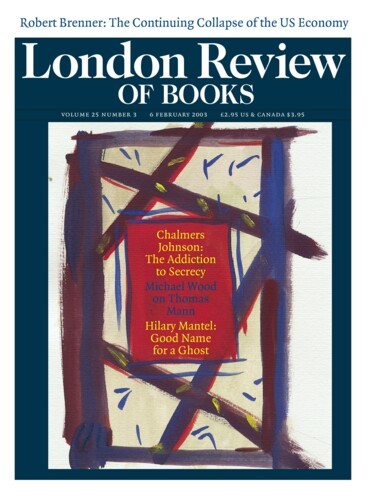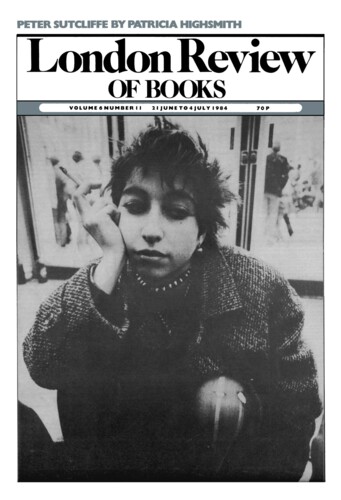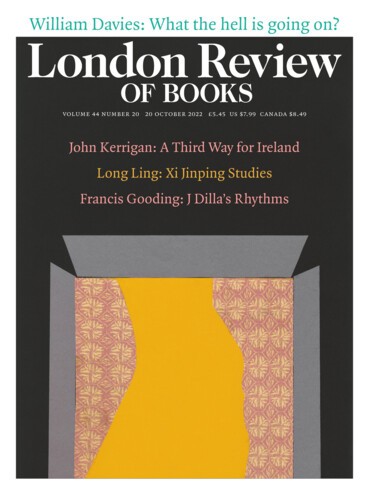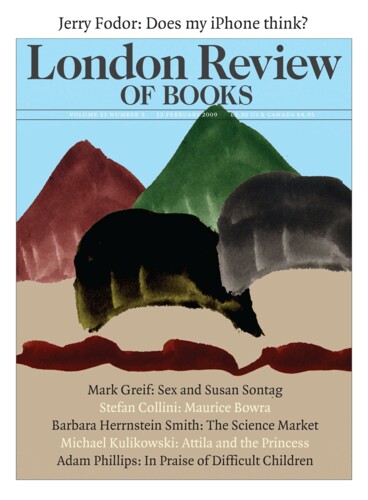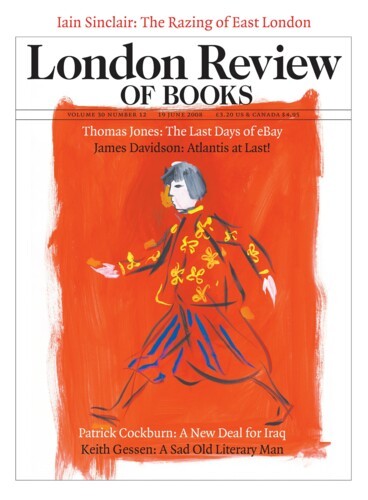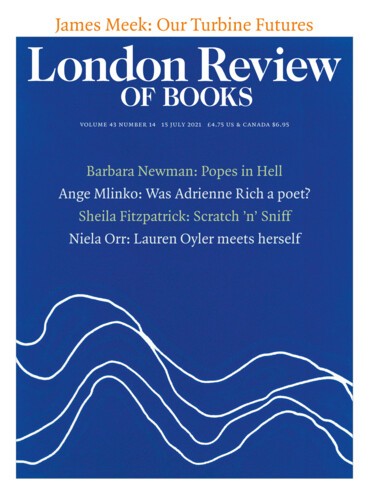Memories of Catriona
Hilary Mantel, 6 February 2003
What I would have liked was a choice in life. Leisure, to reverse my earlier decision that children didn’t matter to me; leisure, to ask if circumstances or my mind had changed. No one can predict that the game will be over for them at the age of 27. The time I fell in love is the time I should have acted, and now that an era of my life is over, and my schoolfriends are becoming grandmothers, I miss the child I never had.
